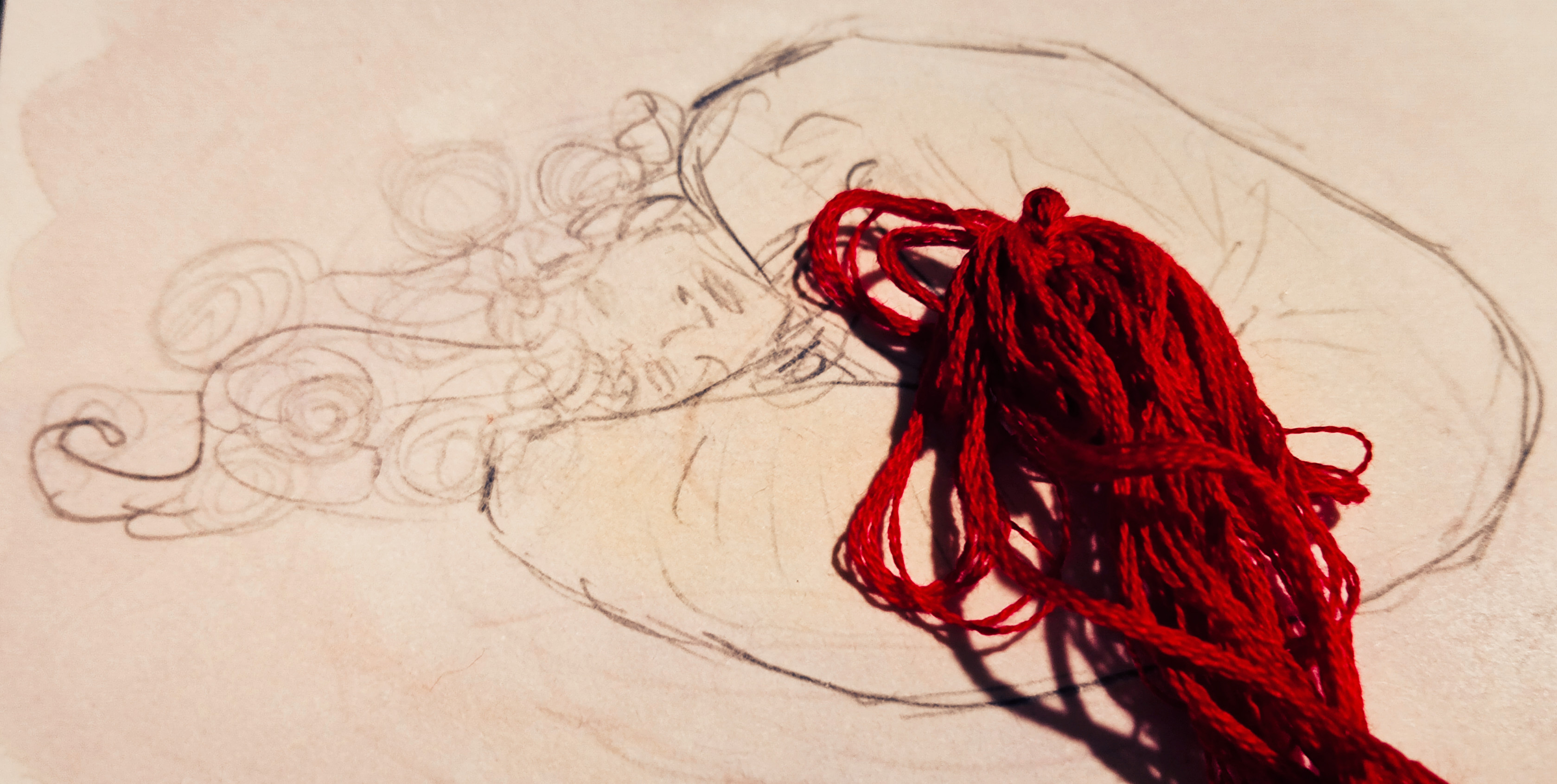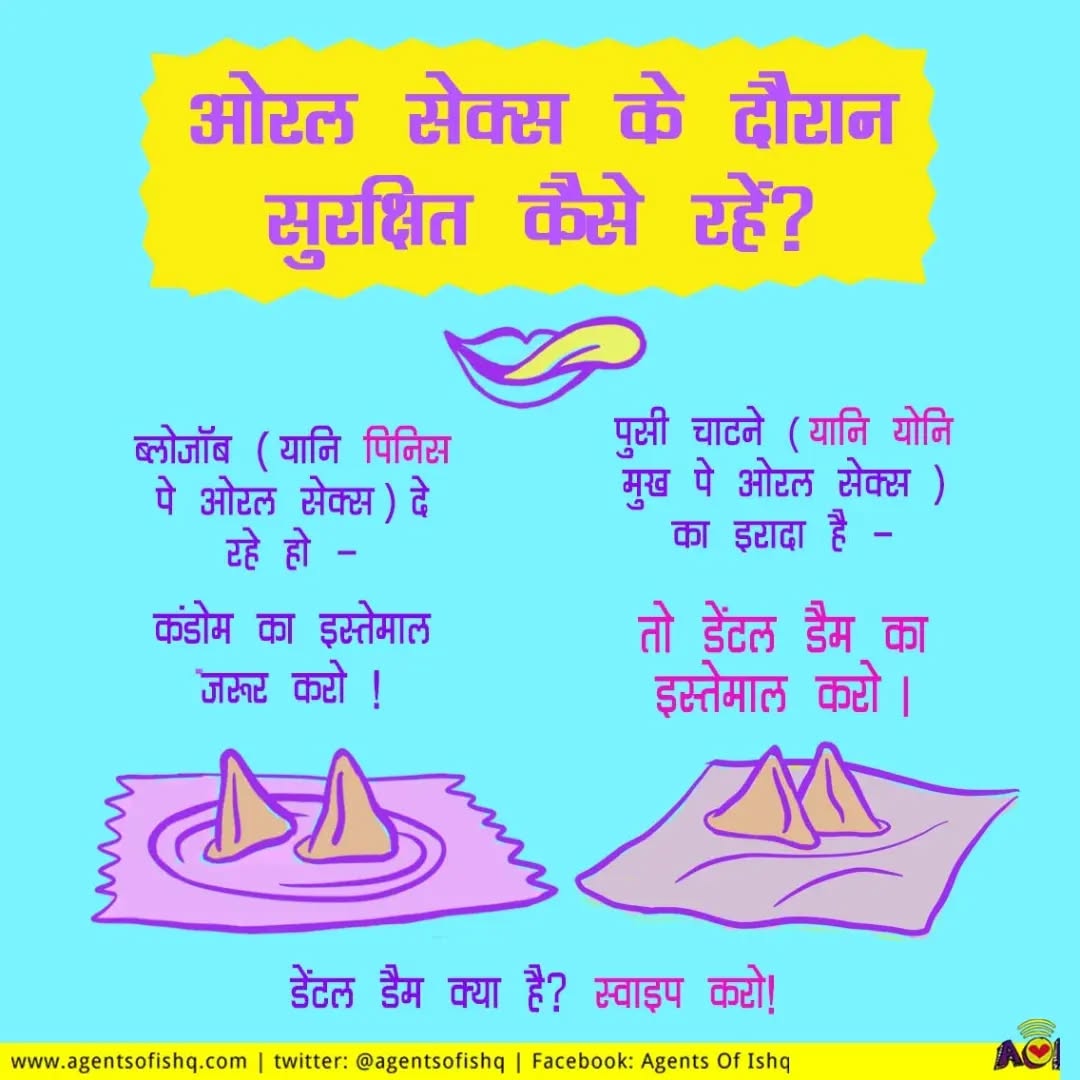Maybe you are lesbian, gay, bisexual, trans, queer or intersex (LGBTQI). Maybe you are wondering how to be supportive of your LGBTQI friends or family. Maybe you are heading to your first pride march sometime this year. Maybe more queer books are just part of your plan to read more books this year. Whatever the reason, books are a great way to get inside someone else’s skin, someone else’s life - and sometimes find a connection to your own.Over the years, some Indian books with queer themes have become classics. They include pioneering collections such as Ashwini Sukthankar’s Facing the Mirror: Lesbian Writing from India (1999, English) and Ruth Vanita’s Queering India: Same-Sex Love and Eroticism in Indian Culture And Society (2001, English). Everybody has had go-to novels such as Firdaus Kanga’s Trying to Grow (1991, English) or R Raj Rao’s The Boyfriend (2003, English). We’ve been lucky to get genre-bending books like The Mothers of Maya Dip (1989, English) by Suniti Namjoshi and great research as in Maya Sharma’s Loving Women: Being Lesbian in Unprivileged India (2006).The last decade though has seen a beautiful explosion of Indian writing with LGBTQI themes. At Agents of Ishq we have had a great time putting together a selection of recent queer themed books. We’ve got you a book for every mood. Kari by Amruta Patil (2008, English)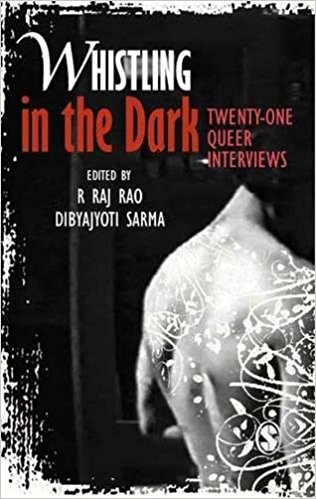 Forbidden Sex, Forbidden Texts: New India's Gay Poetsby Hoshang Merchant (2008, English)This is not an anthology but an academic study of post-Independence India’s gay poetry. But don’t be put off by that. It’s full of Merchant’s superb writing and leads to more superb writing. Merchant also discovers a long-forgotten poet Sultan Padamsee who committed suicide back in the 1920s at the age of 23. Merchant writes about gay theatre as well which is exciting by itself. Here is a bit from the book’s official blurb. “The book argues that there is no monolithic homosexuality; there are only homosexualities, that is, there are as many reasons for being gay as there are gays. Some people are born gay, some have gayness thrust upon them, and some do, indeed, achieve to great gayness.” We can’t possibly do better.
Forbidden Sex, Forbidden Texts: New India's Gay Poetsby Hoshang Merchant (2008, English)This is not an anthology but an academic study of post-Independence India’s gay poetry. But don’t be put off by that. It’s full of Merchant’s superb writing and leads to more superb writing. Merchant also discovers a long-forgotten poet Sultan Padamsee who committed suicide back in the 1920s at the age of 23. Merchant writes about gay theatre as well which is exciting by itself. Here is a bit from the book’s official blurb. “The book argues that there is no monolithic homosexuality; there are only homosexualities, that is, there are as many reasons for being gay as there are gays. Some people are born gay, some have gayness thrust upon them, and some do, indeed, achieve to great gayness.” We can’t possibly do better.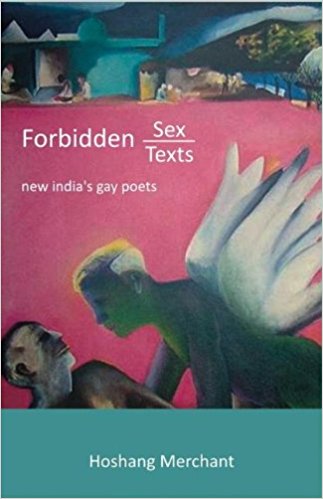 Blue Boy by Rakesh Satyal (2009, English)Today, there’s a reasonably sized army of LGBTQI books written by the Indian diaspora. Satyal’s novel is the much-admired story of 12-year-old Kiran Sharma in middle America. Kiran likes ballet and knows his Malibu Barbie from his Evening Gown Barbie. Kiran thinks he is special but also fed up with not fitting in. Eventually he convinces himself he is the 10th reincarnation of Krishna. He plans to come out to the world at the school talent show. As he practices his dance moves to a Whitney Houston song, something begins to happen to Kiran’s skin. Funny, warm and kind, this is a wonderful coming-of-age story set in the 1990s.
Blue Boy by Rakesh Satyal (2009, English)Today, there’s a reasonably sized army of LGBTQI books written by the Indian diaspora. Satyal’s novel is the much-admired story of 12-year-old Kiran Sharma in middle America. Kiran likes ballet and knows his Malibu Barbie from his Evening Gown Barbie. Kiran thinks he is special but also fed up with not fitting in. Eventually he convinces himself he is the 10th reincarnation of Krishna. He plans to come out to the world at the school talent show. As he practices his dance moves to a Whitney Houston song, something begins to happen to Kiran’s skin. Funny, warm and kind, this is a wonderful coming-of-age story set in the 1990s.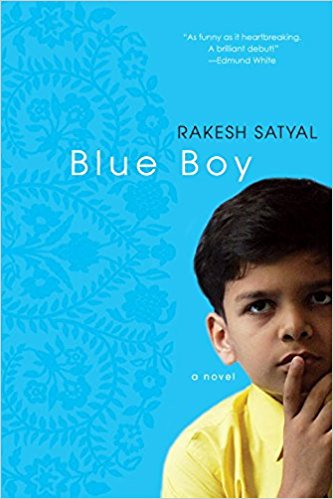 Pink Sheep by Mahesh Natarajan (2010, English)The title of this collection of short stories pay homage to the popular Pride slogan, “I am the Pink Sheep of the family.” Natarajan’s stories are set among conservative, south Indian families. The familiar domesticity of home-cooked meals, favourite festivals, misunderstandings and reconciliations envelops the book. It’s a world in which lovers may come or go but mothers find a way to stand by you.
Pink Sheep by Mahesh Natarajan (2010, English)The title of this collection of short stories pay homage to the popular Pride slogan, “I am the Pink Sheep of the family.” Natarajan’s stories are set among conservative, south Indian families. The familiar domesticity of home-cooked meals, favourite festivals, misunderstandings and reconciliations envelops the book. It’s a world in which lovers may come or go but mothers find a way to stand by you.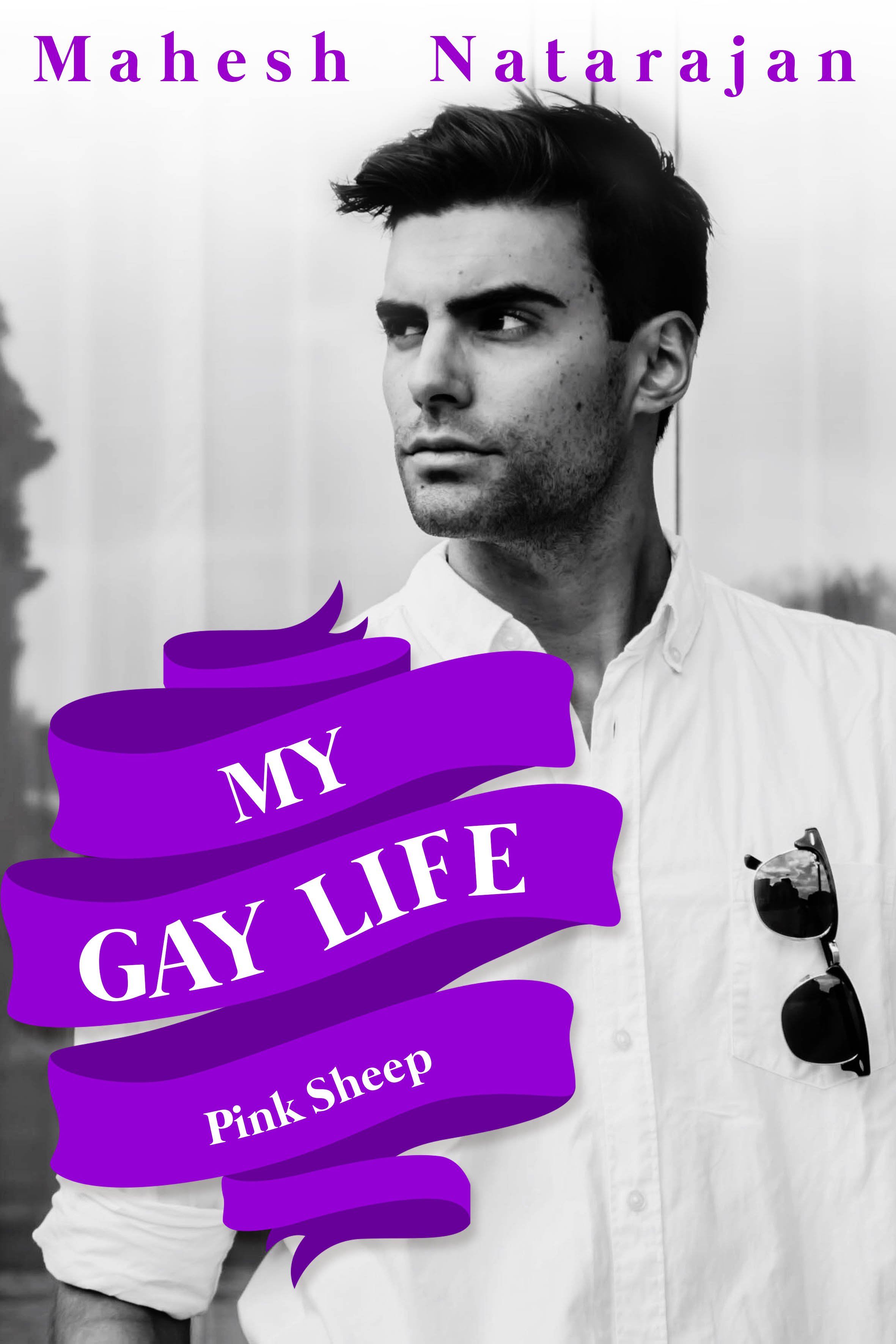 The Man Who Would be Queen: Autobiographical Fictions by Hoshang Merchant (2011, English)Through a series of vignettes poet and professor Merchant shows us glimpses of a wealthy but dramatically dysfunctional childhood in Mumbai, the dizzy 70s abroad and later sensational stories of love in the Middle East. And still later, the story of his giving up his inheritance to live out old age on next to nothing. Like the famous British memoir Naked Civil Servant, this is a book that narrates pain and difficulty with the arm’s length distance of irony. This is not to say that you miss Merchant’s enormous capacity to accept pain and difficulty in a life fully lived.
The Man Who Would be Queen: Autobiographical Fictions by Hoshang Merchant (2011, English)Through a series of vignettes poet and professor Merchant shows us glimpses of a wealthy but dramatically dysfunctional childhood in Mumbai, the dizzy 70s abroad and later sensational stories of love in the Middle East. And still later, the story of his giving up his inheritance to live out old age on next to nothing. Like the famous British memoir Naked Civil Servant, this is a book that narrates pain and difficulty with the arm’s length distance of irony. This is not to say that you miss Merchant’s enormous capacity to accept pain and difficulty in a life fully lived.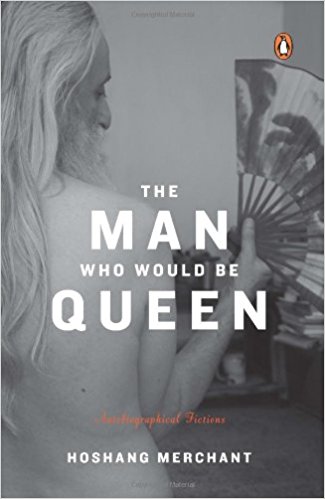 A Life Apart by Neel Mukherjee (2008, English)Ritwik Ghosh has no parents and not much money. When he goes on scholarship to Oxford he becomes addicted to the thrills of cruising for men in public loos. He loves the dangerous game of distinguishing between men who have come only to pee and those who are looking for more action. Action in the cold, graffiti covered stalls is not separate from the violence and complications of race or from the violence and complications of his belt-wielding dead mother. This is a clever, frank and engaging novel by award-winning writer Mukherjee.
A Life Apart by Neel Mukherjee (2008, English)Ritwik Ghosh has no parents and not much money. When he goes on scholarship to Oxford he becomes addicted to the thrills of cruising for men in public loos. He loves the dangerous game of distinguishing between men who have come only to pee and those who are looking for more action. Action in the cold, graffiti covered stalls is not separate from the violence and complications of race or from the violence and complications of his belt-wielding dead mother. This is a clever, frank and engaging novel by award-winning writer Mukherjee.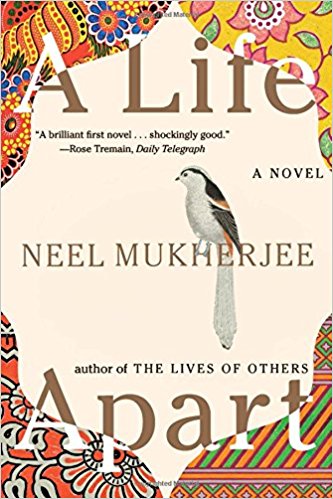 Queer by Sunil Gupta (2011, English)If you are a fan of legendary photographer Sunil Gupta or if you have never seen his work this is still a great book for you. It features selections from all his important series, which have always explored issues of gender and sexuality. Gupta is also famous for documenting his experiences living with AIDS. The photo essays range from images of children living in an HIV-positive care center, 1970s street scenes from New York City, fabulous portraits of queer Indians and more.
Queer by Sunil Gupta (2011, English)If you are a fan of legendary photographer Sunil Gupta or if you have never seen his work this is still a great book for you. It features selections from all his important series, which have always explored issues of gender and sexuality. Gupta is also famous for documenting his experiences living with AIDS. The photo essays range from images of children living in an HIV-positive care center, 1970s street scenes from New York City, fabulous portraits of queer Indians and more.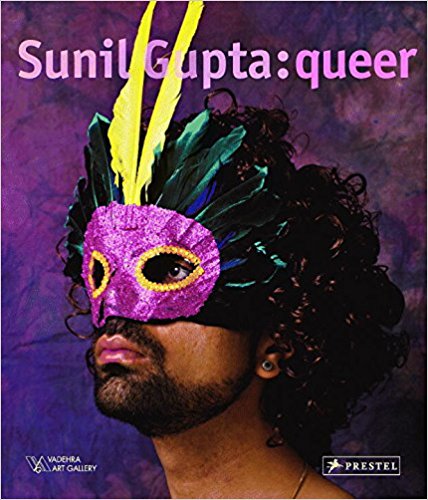 A Life in Trans Activism by A Revathi as told to Nandini Murali (2016, English)Revathi’s first book, Unarvum Uruvamum (roughly ‘feelings and the body’ in Tamil) was about her research among aravanis in Tamil Nadu. Her next book, a ground-breaking memoir was translated into English as The Truth About Me. This new book takes up from where The Truth About Me ends. How did a quiet aravani with a poetic bend rise from office assistant to director in a large Bangalore NGO? How did she go on to become an important and independent activist, actor and writer? In this book Revathi also talks about the lives of transmen and her maternal feelings towards several transmen. Revathi’s third book is as fascinating as the previous two.
A Life in Trans Activism by A Revathi as told to Nandini Murali (2016, English)Revathi’s first book, Unarvum Uruvamum (roughly ‘feelings and the body’ in Tamil) was about her research among aravanis in Tamil Nadu. Her next book, a ground-breaking memoir was translated into English as The Truth About Me. This new book takes up from where The Truth About Me ends. How did a quiet aravani with a poetic bend rise from office assistant to director in a large Bangalore NGO? How did she go on to become an important and independent activist, actor and writer? In this book Revathi also talks about the lives of transmen and her maternal feelings towards several transmen. Revathi’s third book is as fascinating as the previous two.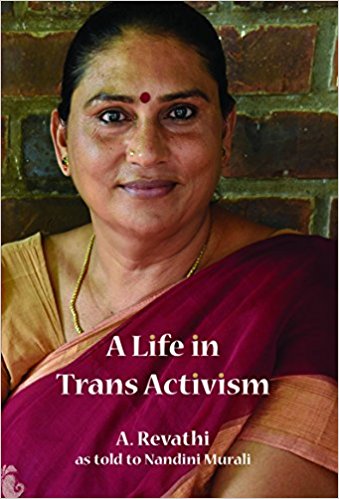 Out! Stories from the New Queer India, edited by Minal Hajratwala (2012, English)A Sikh mother talks about her son becoming her daughter. A young gay man talks about Section 377 with fellow law students in Bangalore even as the Delhi High Court is making a decision. Two female were-lions with henna tattoos fall in love. So do boarding schoolgirls. Two small-town girls fall in love, make plans but sort of miss the bus. A woman embraces her dead husband’s gay lover. This collection of 30 stories (some translated) tells an ambitious range of queer narratives.
Out! Stories from the New Queer India, edited by Minal Hajratwala (2012, English)A Sikh mother talks about her son becoming her daughter. A young gay man talks about Section 377 with fellow law students in Bangalore even as the Delhi High Court is making a decision. Two female were-lions with henna tattoos fall in love. So do boarding schoolgirls. Two small-town girls fall in love, make plans but sort of miss the bus. A woman embraces her dead husband’s gay lover. This collection of 30 stories (some translated) tells an ambitious range of queer narratives.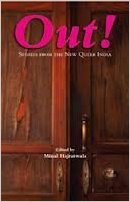 Close, Too Close: The Tranquebar Book of Queer Erotica edited by Meenu and Shruti (2012, English)This is a collection full of well-written, smart and importantly, sexy stories. From the changing rooms of a posh swimming pool to a kitchen where the narrator is cooking rajma chawal, from mythology to Nilofar’s Shadowboxer, a graphic story without any text, the heat is everywhere. In one popular and affectionately told story, Iravi’s All In The Game, the blindfolded narrator has to guess which of her group of queer friends have just kissed. A couple of stories push the dirty, hot envelope by breezing past necrophilia or dwelling on a molestation in the bus. As writer Sharanya Manivannan said seductively about this book, “these stories trade not in definitions but in desires, and offer a large array of them.”
Close, Too Close: The Tranquebar Book of Queer Erotica edited by Meenu and Shruti (2012, English)This is a collection full of well-written, smart and importantly, sexy stories. From the changing rooms of a posh swimming pool to a kitchen where the narrator is cooking rajma chawal, from mythology to Nilofar’s Shadowboxer, a graphic story without any text, the heat is everywhere. In one popular and affectionately told story, Iravi’s All In The Game, the blindfolded narrator has to guess which of her group of queer friends have just kissed. A couple of stories push the dirty, hot envelope by breezing past necrophilia or dwelling on a molestation in the bus. As writer Sharanya Manivannan said seductively about this book, “these stories trade not in definitions but in desires, and offer a large array of them.”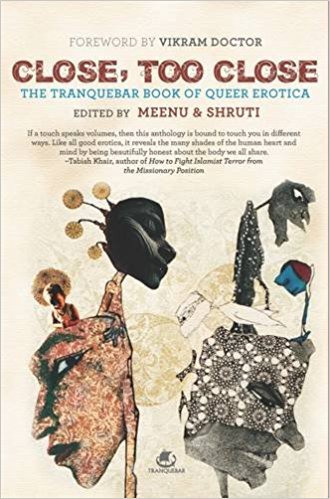 Cobalt Blue by Sachin Kundalkar (2013, Marathi, translated to English by Jerry Pinto)The Joshi household had a new paying guest. He paid his rent on time. Tanay found him perfect. “We hit it off immediately; neither of us liked the kind of girl who would sing syrupy light classical music—bhav geet; nor the kind of boy who would wear banians with sleeves.” But what happened when Tanay’s sister Anuja found him perfect too? This is the premise of the stunning Marathi novel that award-winning filmmaker Sachin Kundalkar wrote when he was a mere 22. Translated into English by Jerry Pinto, a new slew of readers now has a chance to enjoy this elegant tale of a stranger who arrives in a quiet household and breaks its conventions and breaks hearts.
Cobalt Blue by Sachin Kundalkar (2013, Marathi, translated to English by Jerry Pinto)The Joshi household had a new paying guest. He paid his rent on time. Tanay found him perfect. “We hit it off immediately; neither of us liked the kind of girl who would sing syrupy light classical music—bhav geet; nor the kind of boy who would wear banians with sleeves.” But what happened when Tanay’s sister Anuja found him perfect too? This is the premise of the stunning Marathi novel that award-winning filmmaker Sachin Kundalkar wrote when he was a mere 22. Translated into English by Jerry Pinto, a new slew of readers now has a chance to enjoy this elegant tale of a stranger who arrives in a quiet household and breaks its conventions and breaks hearts.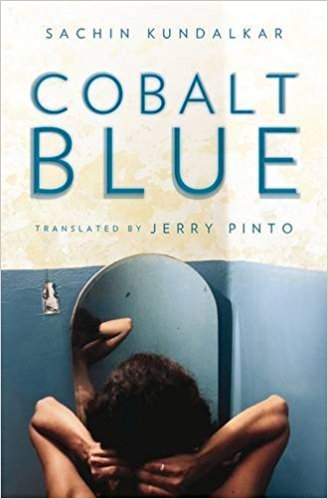 I am Vidya: A Transgender’s Journey by Living Smile Vidya (2013, English)Living Smile Vidya, Chennai-based trans woman activist and actor wrote her memoir Naan Saravanan Illai, Vidya (I am not Saravanan, I am Vidya) back in 2004. The memoir was based on her blog in which she talked about her transition, love and politics among other things. “I love the window seat in trains,” begins the book. Since then the book has travelled and travelled and travelled offering a window seat to so many readers in multiple languages. Take the Kannada translation. First the translation won a Sahitya Akademi award and then inspired a movie which won national awards for its trans lead actor Sanchari Vijay and a state award for Vidya. Run, don’t walk, to the nearest translation.
I am Vidya: A Transgender’s Journey by Living Smile Vidya (2013, English)Living Smile Vidya, Chennai-based trans woman activist and actor wrote her memoir Naan Saravanan Illai, Vidya (I am not Saravanan, I am Vidya) back in 2004. The memoir was based on her blog in which she talked about her transition, love and politics among other things. “I love the window seat in trains,” begins the book. Since then the book has travelled and travelled and travelled offering a window seat to so many readers in multiple languages. Take the Kannada translation. First the translation won a Sahitya Akademi award and then inspired a movie which won national awards for its trans lead actor Sanchari Vijay and a state award for Vidya. Run, don’t walk, to the nearest translation.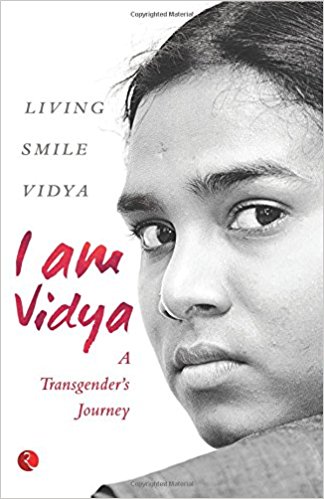 The Dead Camel & Other Stories of Love by Parvati Sharma (2010, English)Sharma’s collection of perfect short stories deserves every bit of fervent admiration it received and more. From the story of the man who has a fetish for making beds to the sparkling reinterpretation of Ismat Chugtai’s Lihaaf, from the housewife fed up with the sounds of sex next door to the novelist who almost kills a prospective publisher, every story in this debut collection has play, pleasure and kindness.
The Dead Camel & Other Stories of Love by Parvati Sharma (2010, English)Sharma’s collection of perfect short stories deserves every bit of fervent admiration it received and more. From the story of the man who has a fetish for making beds to the sparkling reinterpretation of Ismat Chugtai’s Lihaaf, from the housewife fed up with the sounds of sex next door to the novelist who almost kills a prospective publisher, every story in this debut collection has play, pleasure and kindness.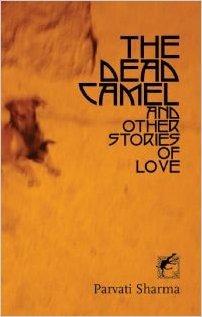 Shikhandi & Other ‘Queer’ Tales They Don’t Tell You by Devdutt Pattanaik (2014, English)The master storyteller has several brilliant gems in this collection of the queer in mythology from India and elsewhere. You may have heard of Shikhandi from the Mahabharata, who was born a girl but raised a boy. But did you know that the apsara Urvashi was born from a pair of warriors, Nara and Narayana? Why did Bhishma castrate himself? Where did the hijra learn her clap? The book is full of satisfying answers and even more satisfying questions.
Shikhandi & Other ‘Queer’ Tales They Don’t Tell You by Devdutt Pattanaik (2014, English)The master storyteller has several brilliant gems in this collection of the queer in mythology from India and elsewhere. You may have heard of Shikhandi from the Mahabharata, who was born a girl but raised a boy. But did you know that the apsara Urvashi was born from a pair of warriors, Nara and Narayana? Why did Bhishma castrate himself? Where did the hijra learn her clap? The book is full of satisfying answers and even more satisfying questions.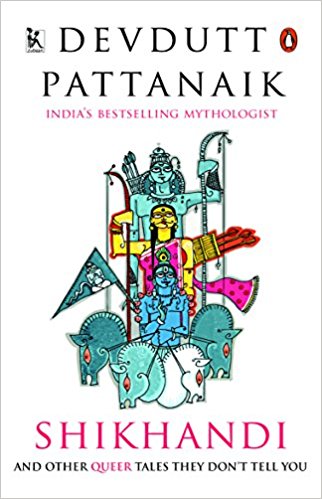 Don’t Let Him Know by Sandip Roy (2015, English)Romola Mitra had hoped to marry a Bengali movie star but instead she flies from Kolkata to a tiny apartment in an American university town with her brand-new husband. In those early days she accidentally opens a letter from India and it changes everything. Even decades later, when her son Amit finds the love letter he only thinks this is evidence of his mother’s secret paramour. But Amit doesn’t remotely suspect that it was his wonderful father Avinash the letter was meant for. It’s his father who lurks on gay Internet groups at times. A lovingly told story that travels from old Kolkata homes to gay bars in California, this will particularly appeal to readers who love novels with deep family secrets.
Don’t Let Him Know by Sandip Roy (2015, English)Romola Mitra had hoped to marry a Bengali movie star but instead she flies from Kolkata to a tiny apartment in an American university town with her brand-new husband. In those early days she accidentally opens a letter from India and it changes everything. Even decades later, when her son Amit finds the love letter he only thinks this is evidence of his mother’s secret paramour. But Amit doesn’t remotely suspect that it was his wonderful father Avinash the letter was meant for. It’s his father who lurks on gay Internet groups at times. A lovingly told story that travels from old Kolkata homes to gay bars in California, this will particularly appeal to readers who love novels with deep family secrets.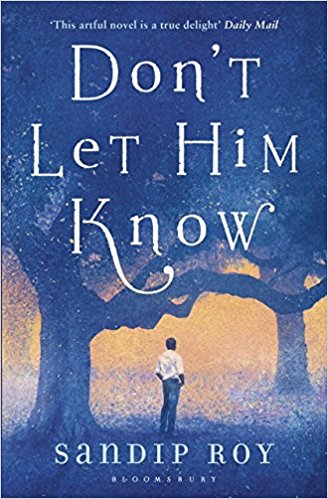 Mohanaswamy by Vasudhendra (2013, Kannada, translated to English by Rashmi Terdal)In 2011, Desha Kala, the Kannada literary magazine ran a short story about a small town gay man called Mohanaswamy. In 2013, the author Shanmukha S came out of the closet, in two ways. One, Shanmukha turned out to be author Vasudhendra, a man with a dozen popular books to his credit and a Sahitya Akademi award. Two, he revealed the short story to be heavily autobiographical. Next came a best-selling collection of short stories about gay men in urban and semi-urban Karnataka. It has been easy for many people to relate to characters like the eponymous Mohanaswamy who believed for a while, "If I learn to ride a bicycle, I will turn from gay to straight.” Translated into English by Rashmi Terdal, the collection began a fresh and exciting journey in 2016.
Mohanaswamy by Vasudhendra (2013, Kannada, translated to English by Rashmi Terdal)In 2011, Desha Kala, the Kannada literary magazine ran a short story about a small town gay man called Mohanaswamy. In 2013, the author Shanmukha S came out of the closet, in two ways. One, Shanmukha turned out to be author Vasudhendra, a man with a dozen popular books to his credit and a Sahitya Akademi award. Two, he revealed the short story to be heavily autobiographical. Next came a best-selling collection of short stories about gay men in urban and semi-urban Karnataka. It has been easy for many people to relate to characters like the eponymous Mohanaswamy who believed for a while, "If I learn to ride a bicycle, I will turn from gay to straight.” Translated into English by Rashmi Terdal, the collection began a fresh and exciting journey in 2016. 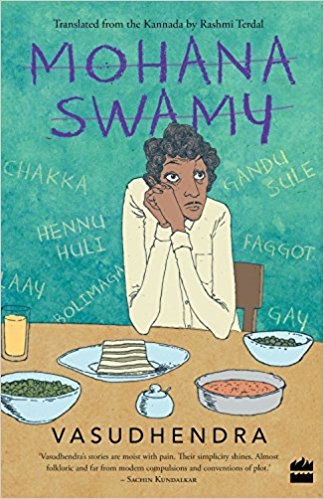 Red Lipstick: The Men In My Life by Laxmi and Pooja Pande (2016)“I am the epitome of sluthood—I can be the ultimate seductress and I can also suddenly become otherworldly, divine and naive. I’m like a serpent, slippery.” This is a characteristically gung-ho passage in the memoir of well-known transgender activist Laxmi Narayan Tripathi, co-written by journalist Pooja Pande. When they began their collaboration Tripathi told Pande that “she wanted to write a book about dicks.” Each section of the book is thus devoted to a different possessor of a penis – friends, mentors, lovers, quasi brothers and so on. In this exploration of masculine entities in her life, she also lovingly embraces Raju, the man she once was and still is, sometimes in the mirror and often in her relationship with her family. Laxmi’s acceptance of herself and her life is sometimes thrilling and often plain old inspiring.
Red Lipstick: The Men In My Life by Laxmi and Pooja Pande (2016)“I am the epitome of sluthood—I can be the ultimate seductress and I can also suddenly become otherworldly, divine and naive. I’m like a serpent, slippery.” This is a characteristically gung-ho passage in the memoir of well-known transgender activist Laxmi Narayan Tripathi, co-written by journalist Pooja Pande. When they began their collaboration Tripathi told Pande that “she wanted to write a book about dicks.” Each section of the book is thus devoted to a different possessor of a penis – friends, mentors, lovers, quasi brothers and so on. In this exploration of masculine entities in her life, she also lovingly embraces Raju, the man she once was and still is, sometimes in the mirror and often in her relationship with her family. Laxmi’s acceptance of herself and her life is sometimes thrilling and often plain old inspiring.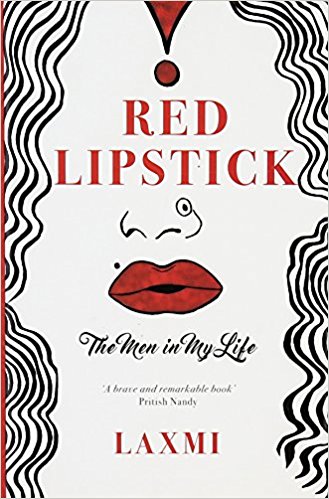 gagged by soz (2017, English & Hindi)This is soz’s self-description: “a repressed poet, a non-identifying person with the body given at birth. Soz is the person who lives the life the poet desires but is scared to live.” The well-produced first issue of soz’s zine gagged uses poetry, photographs, illustration and narration to tell many stories of the poet’s pleasures and pain. Every now and then a sharply-turned, biting phrase is likely to make you smile. Observe: ‘did we forget/only the state/can fuck in public? /pleasure is not mine/I remember’
gagged by soz (2017, English & Hindi)This is soz’s self-description: “a repressed poet, a non-identifying person with the body given at birth. Soz is the person who lives the life the poet desires but is scared to live.” The well-produced first issue of soz’s zine gagged uses poetry, photographs, illustration and narration to tell many stories of the poet’s pleasures and pain. Every now and then a sharply-turned, biting phrase is likely to make you smile. Observe: ‘did we forget/only the state/can fuck in public? /pleasure is not mine/I remember’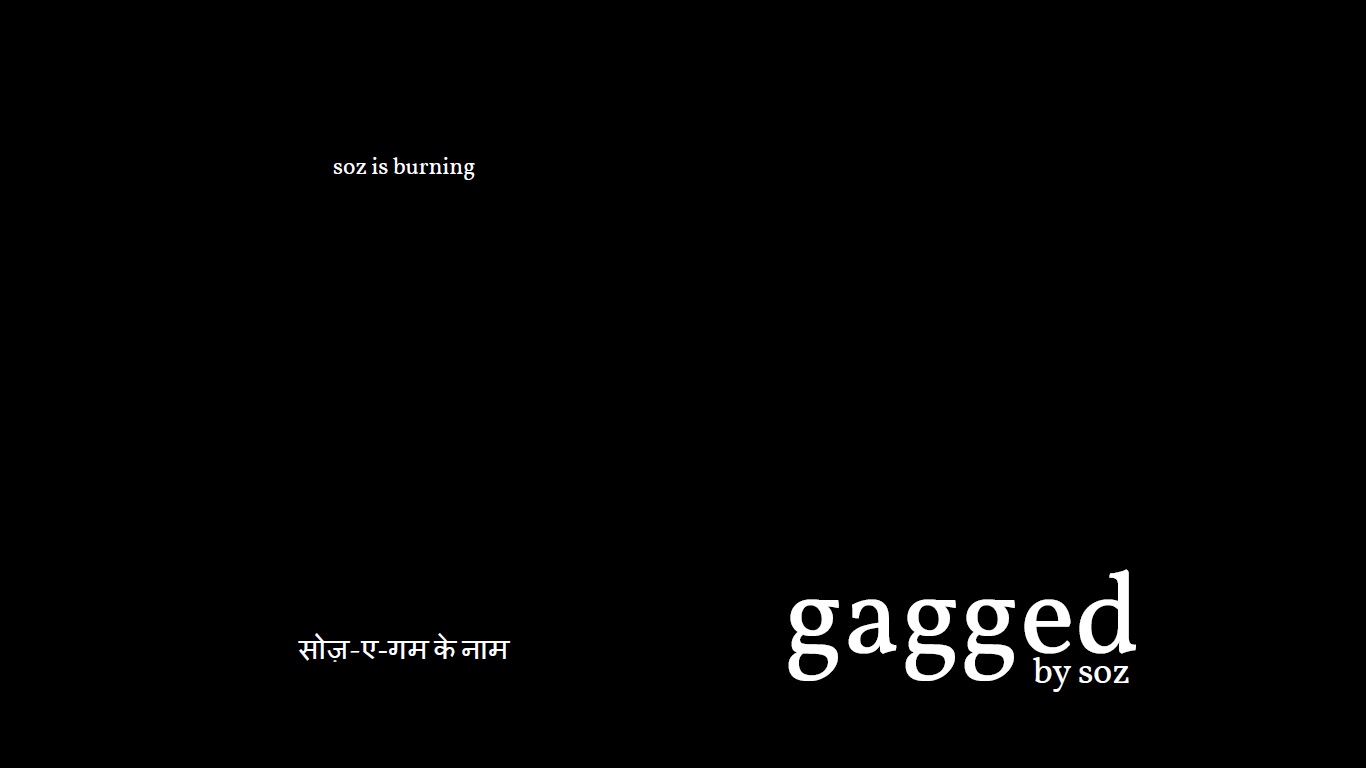 I Am Divine. So Are You: How Buddhism, Jainism, Sikhism and Hinduism Affirm the Dignity of Queer Identities and Sexualities Edited by Devdutt Pattanaik and Jerry Johnson (2017, English)“While one of the first documented anti-queer proscriptions is found in early Buddhist scriptures, we also see the earliest recorded same-sex marriage in modern society being conducted by a Buddhist organization in the US. This interpretation of Buddhism allows an individual – queer or otherwise – to blossom into the fullness of their compassionate self,” says one of the essayists in this collection. In 2015 at the global Festival of Theology in Sweden a discussion broke new ground, examining what the scriptures of Judaism, Christianity and Islam said about human sexuality. This book extends this discussion with perspectives from Buddhism, Jainism, Sikhism and Hinduism. Can these religions, which the authors call Karmic faiths be seen as an ally of queer lives? This is the question that this book asks.
I Am Divine. So Are You: How Buddhism, Jainism, Sikhism and Hinduism Affirm the Dignity of Queer Identities and Sexualities Edited by Devdutt Pattanaik and Jerry Johnson (2017, English)“While one of the first documented anti-queer proscriptions is found in early Buddhist scriptures, we also see the earliest recorded same-sex marriage in modern society being conducted by a Buddhist organization in the US. This interpretation of Buddhism allows an individual – queer or otherwise – to blossom into the fullness of their compassionate self,” says one of the essayists in this collection. In 2015 at the global Festival of Theology in Sweden a discussion broke new ground, examining what the scriptures of Judaism, Christianity and Islam said about human sexuality. This book extends this discussion with perspectives from Buddhism, Jainism, Sikhism and Hinduism. Can these religions, which the authors call Karmic faiths be seen as an ally of queer lives? This is the question that this book asks.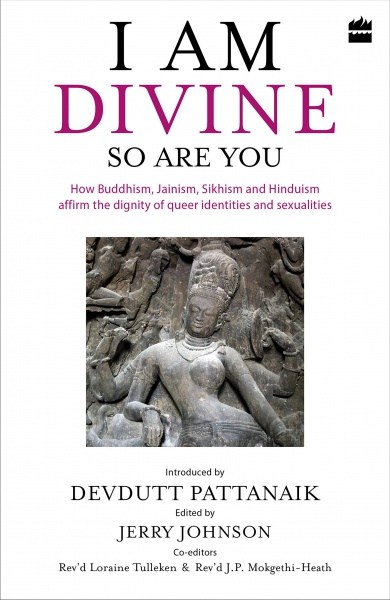 Punarapi by Kavya Kadame Nagarakatte (2017, Kannada)In her first novel, award-winning young Kannada poet Kavya Kadame tells the story of Asma and Anusha who come from very different backgrounds and find themselves madly attracted to each other. Kadame has said that the idea for her novel grew out of reading Mohanaswamy and Julian Barnes’ Sense of An Ending. Punarapi has been admired for its beautiful prose and earnest young heroines.
Punarapi by Kavya Kadame Nagarakatte (2017, Kannada)In her first novel, award-winning young Kannada poet Kavya Kadame tells the story of Asma and Anusha who come from very different backgrounds and find themselves madly attracted to each other. Kadame has said that the idea for her novel grew out of reading Mohanaswamy and Julian Barnes’ Sense of An Ending. Punarapi has been admired for its beautiful prose and earnest young heroines.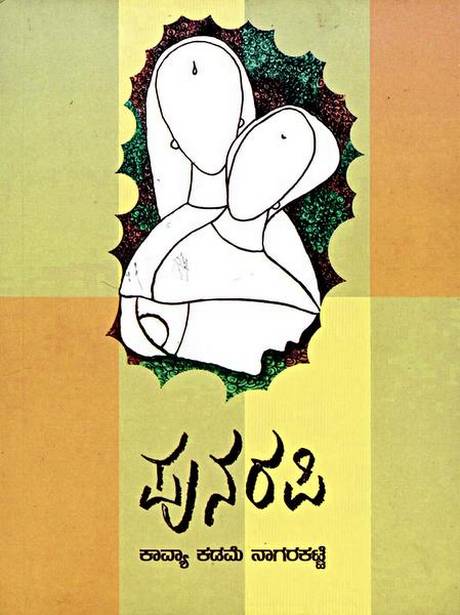 And if ever there was a true sign of the blooming of queer desi literature it is in the flourishing of middlebrow and page-turner fiction with LGBT themes and characters.If your thing is the easy read or middle-brow, you are in luck because there is everything from Vivek and I by Mayur Patel (2012, English) to Perfectly Untraditional by Sweta Srivastava Vikram (2011, English) to the Normal State of Mind by Susmita Bhattacharya (2015, English).And if pulp is your thing look out for plenty of titles from Love Bi the Way by Bhaavna Arora (2016, English) to Co-Wife by Pradipta Panda (2016, English) to The Green Rose by Sharmila Mukherjee (2012, English). Sit back and enjoy super good looking queer heroes and heroines, mind-boggling plots, murder, mayhem, real estate shadiness and mega love triangles.Bonus: If you like Instagram poetry then you might want to check out The Tree Outside My Window is A Drama Queen, a collection of 60 poems by Avinash Matta (2017, English)Bonus Bonus: The calendar you need this reading year is the fabulous and flower-strewn wonder from Chennai-based NGO, Sahodaran. All proceeds from Flora go to support this male sexual health project. Let every month be filled with beauty and gerberas. Or, asters.
And if ever there was a true sign of the blooming of queer desi literature it is in the flourishing of middlebrow and page-turner fiction with LGBT themes and characters.If your thing is the easy read or middle-brow, you are in luck because there is everything from Vivek and I by Mayur Patel (2012, English) to Perfectly Untraditional by Sweta Srivastava Vikram (2011, English) to the Normal State of Mind by Susmita Bhattacharya (2015, English).And if pulp is your thing look out for plenty of titles from Love Bi the Way by Bhaavna Arora (2016, English) to Co-Wife by Pradipta Panda (2016, English) to The Green Rose by Sharmila Mukherjee (2012, English). Sit back and enjoy super good looking queer heroes and heroines, mind-boggling plots, murder, mayhem, real estate shadiness and mega love triangles.Bonus: If you like Instagram poetry then you might want to check out The Tree Outside My Window is A Drama Queen, a collection of 60 poems by Avinash Matta (2017, English)Bonus Bonus: The calendar you need this reading year is the fabulous and flower-strewn wonder from Chennai-based NGO, Sahodaran. All proceeds from Flora go to support this male sexual health project. Let every month be filled with beauty and gerberas. Or, asters.
In the beginning Kari and her lover Ruth try to kill themselves by jumping from the top of a building. Ruth is saved by a safety net and runs away abroad. Kari falls into a sewer and goes on to live in the smog city of Bombay. Then this marvelous graphic novel goes on to tell the story of Kari, her friends, the secrets of her heart and the secrets of the city. Patil’s beautiful art is only matched by the lushness of her prose.
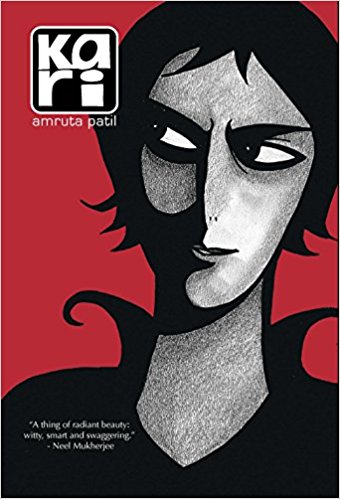
Whistling in the Dark: Twenty-One Queer Interviews
by R Raj Rao and Dibyajyoti Sarma (2008, English)
In 1999, academic and novelist R Raj Rao and others in the newly-formed Queer Studies Circle met in the University of Pune and shared their personal histories. Men who came to this meeting included people from countries as diverse as Canada and Sri Lanka. They were students, poets, auto rickshaw drivers and masseurs. The interviews of some of the participants of the group reflect discussions on everything from masculinity to male privilege, from colonisation to condoms, from aliases to abuse. The interviews are intimate, sharp and frequently witty. Forbidden Sex, Forbidden Texts: New India's Gay Poetsby Hoshang Merchant (2008, English)This is not an anthology but an academic study of post-Independence India’s gay poetry. But don’t be put off by that. It’s full of Merchant’s superb writing and leads to more superb writing. Merchant also discovers a long-forgotten poet Sultan Padamsee who committed suicide back in the 1920s at the age of 23. Merchant writes about gay theatre as well which is exciting by itself. Here is a bit from the book’s official blurb. “The book argues that there is no monolithic homosexuality; there are only homosexualities, that is, there are as many reasons for being gay as there are gays. Some people are born gay, some have gayness thrust upon them, and some do, indeed, achieve to great gayness.” We can’t possibly do better.
Forbidden Sex, Forbidden Texts: New India's Gay Poetsby Hoshang Merchant (2008, English)This is not an anthology but an academic study of post-Independence India’s gay poetry. But don’t be put off by that. It’s full of Merchant’s superb writing and leads to more superb writing. Merchant also discovers a long-forgotten poet Sultan Padamsee who committed suicide back in the 1920s at the age of 23. Merchant writes about gay theatre as well which is exciting by itself. Here is a bit from the book’s official blurb. “The book argues that there is no monolithic homosexuality; there are only homosexualities, that is, there are as many reasons for being gay as there are gays. Some people are born gay, some have gayness thrust upon them, and some do, indeed, achieve to great gayness.” We can’t possibly do better. Blue Boy by Rakesh Satyal (2009, English)Today, there’s a reasonably sized army of LGBTQI books written by the Indian diaspora. Satyal’s novel is the much-admired story of 12-year-old Kiran Sharma in middle America. Kiran likes ballet and knows his Malibu Barbie from his Evening Gown Barbie. Kiran thinks he is special but also fed up with not fitting in. Eventually he convinces himself he is the 10th reincarnation of Krishna. He plans to come out to the world at the school talent show. As he practices his dance moves to a Whitney Houston song, something begins to happen to Kiran’s skin. Funny, warm and kind, this is a wonderful coming-of-age story set in the 1990s.
Blue Boy by Rakesh Satyal (2009, English)Today, there’s a reasonably sized army of LGBTQI books written by the Indian diaspora. Satyal’s novel is the much-admired story of 12-year-old Kiran Sharma in middle America. Kiran likes ballet and knows his Malibu Barbie from his Evening Gown Barbie. Kiran thinks he is special but also fed up with not fitting in. Eventually he convinces himself he is the 10th reincarnation of Krishna. He plans to come out to the world at the school talent show. As he practices his dance moves to a Whitney Houston song, something begins to happen to Kiran’s skin. Funny, warm and kind, this is a wonderful coming-of-age story set in the 1990s. Pink Sheep by Mahesh Natarajan (2010, English)The title of this collection of short stories pay homage to the popular Pride slogan, “I am the Pink Sheep of the family.” Natarajan’s stories are set among conservative, south Indian families. The familiar domesticity of home-cooked meals, favourite festivals, misunderstandings and reconciliations envelops the book. It’s a world in which lovers may come or go but mothers find a way to stand by you.
Pink Sheep by Mahesh Natarajan (2010, English)The title of this collection of short stories pay homage to the popular Pride slogan, “I am the Pink Sheep of the family.” Natarajan’s stories are set among conservative, south Indian families. The familiar domesticity of home-cooked meals, favourite festivals, misunderstandings and reconciliations envelops the book. It’s a world in which lovers may come or go but mothers find a way to stand by you. The Man Who Would be Queen: Autobiographical Fictions by Hoshang Merchant (2011, English)Through a series of vignettes poet and professor Merchant shows us glimpses of a wealthy but dramatically dysfunctional childhood in Mumbai, the dizzy 70s abroad and later sensational stories of love in the Middle East. And still later, the story of his giving up his inheritance to live out old age on next to nothing. Like the famous British memoir Naked Civil Servant, this is a book that narrates pain and difficulty with the arm’s length distance of irony. This is not to say that you miss Merchant’s enormous capacity to accept pain and difficulty in a life fully lived.
The Man Who Would be Queen: Autobiographical Fictions by Hoshang Merchant (2011, English)Through a series of vignettes poet and professor Merchant shows us glimpses of a wealthy but dramatically dysfunctional childhood in Mumbai, the dizzy 70s abroad and later sensational stories of love in the Middle East. And still later, the story of his giving up his inheritance to live out old age on next to nothing. Like the famous British memoir Naked Civil Servant, this is a book that narrates pain and difficulty with the arm’s length distance of irony. This is not to say that you miss Merchant’s enormous capacity to accept pain and difficulty in a life fully lived. A Life Apart by Neel Mukherjee (2008, English)Ritwik Ghosh has no parents and not much money. When he goes on scholarship to Oxford he becomes addicted to the thrills of cruising for men in public loos. He loves the dangerous game of distinguishing between men who have come only to pee and those who are looking for more action. Action in the cold, graffiti covered stalls is not separate from the violence and complications of race or from the violence and complications of his belt-wielding dead mother. This is a clever, frank and engaging novel by award-winning writer Mukherjee.
A Life Apart by Neel Mukherjee (2008, English)Ritwik Ghosh has no parents and not much money. When he goes on scholarship to Oxford he becomes addicted to the thrills of cruising for men in public loos. He loves the dangerous game of distinguishing between men who have come only to pee and those who are looking for more action. Action in the cold, graffiti covered stalls is not separate from the violence and complications of race or from the violence and complications of his belt-wielding dead mother. This is a clever, frank and engaging novel by award-winning writer Mukherjee. Queer by Sunil Gupta (2011, English)If you are a fan of legendary photographer Sunil Gupta or if you have never seen his work this is still a great book for you. It features selections from all his important series, which have always explored issues of gender and sexuality. Gupta is also famous for documenting his experiences living with AIDS. The photo essays range from images of children living in an HIV-positive care center, 1970s street scenes from New York City, fabulous portraits of queer Indians and more.
Queer by Sunil Gupta (2011, English)If you are a fan of legendary photographer Sunil Gupta or if you have never seen his work this is still a great book for you. It features selections from all his important series, which have always explored issues of gender and sexuality. Gupta is also famous for documenting his experiences living with AIDS. The photo essays range from images of children living in an HIV-positive care center, 1970s street scenes from New York City, fabulous portraits of queer Indians and more. A Life in Trans Activism by A Revathi as told to Nandini Murali (2016, English)Revathi’s first book, Unarvum Uruvamum (roughly ‘feelings and the body’ in Tamil) was about her research among aravanis in Tamil Nadu. Her next book, a ground-breaking memoir was translated into English as The Truth About Me. This new book takes up from where The Truth About Me ends. How did a quiet aravani with a poetic bend rise from office assistant to director in a large Bangalore NGO? How did she go on to become an important and independent activist, actor and writer? In this book Revathi also talks about the lives of transmen and her maternal feelings towards several transmen. Revathi’s third book is as fascinating as the previous two.
A Life in Trans Activism by A Revathi as told to Nandini Murali (2016, English)Revathi’s first book, Unarvum Uruvamum (roughly ‘feelings and the body’ in Tamil) was about her research among aravanis in Tamil Nadu. Her next book, a ground-breaking memoir was translated into English as The Truth About Me. This new book takes up from where The Truth About Me ends. How did a quiet aravani with a poetic bend rise from office assistant to director in a large Bangalore NGO? How did she go on to become an important and independent activist, actor and writer? In this book Revathi also talks about the lives of transmen and her maternal feelings towards several transmen. Revathi’s third book is as fascinating as the previous two. Out! Stories from the New Queer India, edited by Minal Hajratwala (2012, English)A Sikh mother talks about her son becoming her daughter. A young gay man talks about Section 377 with fellow law students in Bangalore even as the Delhi High Court is making a decision. Two female were-lions with henna tattoos fall in love. So do boarding schoolgirls. Two small-town girls fall in love, make plans but sort of miss the bus. A woman embraces her dead husband’s gay lover. This collection of 30 stories (some translated) tells an ambitious range of queer narratives.
Out! Stories from the New Queer India, edited by Minal Hajratwala (2012, English)A Sikh mother talks about her son becoming her daughter. A young gay man talks about Section 377 with fellow law students in Bangalore even as the Delhi High Court is making a decision. Two female were-lions with henna tattoos fall in love. So do boarding schoolgirls. Two small-town girls fall in love, make plans but sort of miss the bus. A woman embraces her dead husband’s gay lover. This collection of 30 stories (some translated) tells an ambitious range of queer narratives. Close, Too Close: The Tranquebar Book of Queer Erotica edited by Meenu and Shruti (2012, English)This is a collection full of well-written, smart and importantly, sexy stories. From the changing rooms of a posh swimming pool to a kitchen where the narrator is cooking rajma chawal, from mythology to Nilofar’s Shadowboxer, a graphic story without any text, the heat is everywhere. In one popular and affectionately told story, Iravi’s All In The Game, the blindfolded narrator has to guess which of her group of queer friends have just kissed. A couple of stories push the dirty, hot envelope by breezing past necrophilia or dwelling on a molestation in the bus. As writer Sharanya Manivannan said seductively about this book, “these stories trade not in definitions but in desires, and offer a large array of them.”
Close, Too Close: The Tranquebar Book of Queer Erotica edited by Meenu and Shruti (2012, English)This is a collection full of well-written, smart and importantly, sexy stories. From the changing rooms of a posh swimming pool to a kitchen where the narrator is cooking rajma chawal, from mythology to Nilofar’s Shadowboxer, a graphic story without any text, the heat is everywhere. In one popular and affectionately told story, Iravi’s All In The Game, the blindfolded narrator has to guess which of her group of queer friends have just kissed. A couple of stories push the dirty, hot envelope by breezing past necrophilia or dwelling on a molestation in the bus. As writer Sharanya Manivannan said seductively about this book, “these stories trade not in definitions but in desires, and offer a large array of them.” Cobalt Blue by Sachin Kundalkar (2013, Marathi, translated to English by Jerry Pinto)The Joshi household had a new paying guest. He paid his rent on time. Tanay found him perfect. “We hit it off immediately; neither of us liked the kind of girl who would sing syrupy light classical music—bhav geet; nor the kind of boy who would wear banians with sleeves.” But what happened when Tanay’s sister Anuja found him perfect too? This is the premise of the stunning Marathi novel that award-winning filmmaker Sachin Kundalkar wrote when he was a mere 22. Translated into English by Jerry Pinto, a new slew of readers now has a chance to enjoy this elegant tale of a stranger who arrives in a quiet household and breaks its conventions and breaks hearts.
Cobalt Blue by Sachin Kundalkar (2013, Marathi, translated to English by Jerry Pinto)The Joshi household had a new paying guest. He paid his rent on time. Tanay found him perfect. “We hit it off immediately; neither of us liked the kind of girl who would sing syrupy light classical music—bhav geet; nor the kind of boy who would wear banians with sleeves.” But what happened when Tanay’s sister Anuja found him perfect too? This is the premise of the stunning Marathi novel that award-winning filmmaker Sachin Kundalkar wrote when he was a mere 22. Translated into English by Jerry Pinto, a new slew of readers now has a chance to enjoy this elegant tale of a stranger who arrives in a quiet household and breaks its conventions and breaks hearts. I am Vidya: A Transgender’s Journey by Living Smile Vidya (2013, English)Living Smile Vidya, Chennai-based trans woman activist and actor wrote her memoir Naan Saravanan Illai, Vidya (I am not Saravanan, I am Vidya) back in 2004. The memoir was based on her blog in which she talked about her transition, love and politics among other things. “I love the window seat in trains,” begins the book. Since then the book has travelled and travelled and travelled offering a window seat to so many readers in multiple languages. Take the Kannada translation. First the translation won a Sahitya Akademi award and then inspired a movie which won national awards for its trans lead actor Sanchari Vijay and a state award for Vidya. Run, don’t walk, to the nearest translation.
I am Vidya: A Transgender’s Journey by Living Smile Vidya (2013, English)Living Smile Vidya, Chennai-based trans woman activist and actor wrote her memoir Naan Saravanan Illai, Vidya (I am not Saravanan, I am Vidya) back in 2004. The memoir was based on her blog in which she talked about her transition, love and politics among other things. “I love the window seat in trains,” begins the book. Since then the book has travelled and travelled and travelled offering a window seat to so many readers in multiple languages. Take the Kannada translation. First the translation won a Sahitya Akademi award and then inspired a movie which won national awards for its trans lead actor Sanchari Vijay and a state award for Vidya. Run, don’t walk, to the nearest translation. The Dead Camel & Other Stories of Love by Parvati Sharma (2010, English)Sharma’s collection of perfect short stories deserves every bit of fervent admiration it received and more. From the story of the man who has a fetish for making beds to the sparkling reinterpretation of Ismat Chugtai’s Lihaaf, from the housewife fed up with the sounds of sex next door to the novelist who almost kills a prospective publisher, every story in this debut collection has play, pleasure and kindness.
The Dead Camel & Other Stories of Love by Parvati Sharma (2010, English)Sharma’s collection of perfect short stories deserves every bit of fervent admiration it received and more. From the story of the man who has a fetish for making beds to the sparkling reinterpretation of Ismat Chugtai’s Lihaaf, from the housewife fed up with the sounds of sex next door to the novelist who almost kills a prospective publisher, every story in this debut collection has play, pleasure and kindness. Shikhandi & Other ‘Queer’ Tales They Don’t Tell You by Devdutt Pattanaik (2014, English)The master storyteller has several brilliant gems in this collection of the queer in mythology from India and elsewhere. You may have heard of Shikhandi from the Mahabharata, who was born a girl but raised a boy. But did you know that the apsara Urvashi was born from a pair of warriors, Nara and Narayana? Why did Bhishma castrate himself? Where did the hijra learn her clap? The book is full of satisfying answers and even more satisfying questions.
Shikhandi & Other ‘Queer’ Tales They Don’t Tell You by Devdutt Pattanaik (2014, English)The master storyteller has several brilliant gems in this collection of the queer in mythology from India and elsewhere. You may have heard of Shikhandi from the Mahabharata, who was born a girl but raised a boy. But did you know that the apsara Urvashi was born from a pair of warriors, Nara and Narayana? Why did Bhishma castrate himself? Where did the hijra learn her clap? The book is full of satisfying answers and even more satisfying questions. Don’t Let Him Know by Sandip Roy (2015, English)Romola Mitra had hoped to marry a Bengali movie star but instead she flies from Kolkata to a tiny apartment in an American university town with her brand-new husband. In those early days she accidentally opens a letter from India and it changes everything. Even decades later, when her son Amit finds the love letter he only thinks this is evidence of his mother’s secret paramour. But Amit doesn’t remotely suspect that it was his wonderful father Avinash the letter was meant for. It’s his father who lurks on gay Internet groups at times. A lovingly told story that travels from old Kolkata homes to gay bars in California, this will particularly appeal to readers who love novels with deep family secrets.
Don’t Let Him Know by Sandip Roy (2015, English)Romola Mitra had hoped to marry a Bengali movie star but instead she flies from Kolkata to a tiny apartment in an American university town with her brand-new husband. In those early days she accidentally opens a letter from India and it changes everything. Even decades later, when her son Amit finds the love letter he only thinks this is evidence of his mother’s secret paramour. But Amit doesn’t remotely suspect that it was his wonderful father Avinash the letter was meant for. It’s his father who lurks on gay Internet groups at times. A lovingly told story that travels from old Kolkata homes to gay bars in California, this will particularly appeal to readers who love novels with deep family secrets. Mohanaswamy by Vasudhendra (2013, Kannada, translated to English by Rashmi Terdal)In 2011, Desha Kala, the Kannada literary magazine ran a short story about a small town gay man called Mohanaswamy. In 2013, the author Shanmukha S came out of the closet, in two ways. One, Shanmukha turned out to be author Vasudhendra, a man with a dozen popular books to his credit and a Sahitya Akademi award. Two, he revealed the short story to be heavily autobiographical. Next came a best-selling collection of short stories about gay men in urban and semi-urban Karnataka. It has been easy for many people to relate to characters like the eponymous Mohanaswamy who believed for a while, "If I learn to ride a bicycle, I will turn from gay to straight.” Translated into English by Rashmi Terdal, the collection began a fresh and exciting journey in 2016.
Mohanaswamy by Vasudhendra (2013, Kannada, translated to English by Rashmi Terdal)In 2011, Desha Kala, the Kannada literary magazine ran a short story about a small town gay man called Mohanaswamy. In 2013, the author Shanmukha S came out of the closet, in two ways. One, Shanmukha turned out to be author Vasudhendra, a man with a dozen popular books to his credit and a Sahitya Akademi award. Two, he revealed the short story to be heavily autobiographical. Next came a best-selling collection of short stories about gay men in urban and semi-urban Karnataka. It has been easy for many people to relate to characters like the eponymous Mohanaswamy who believed for a while, "If I learn to ride a bicycle, I will turn from gay to straight.” Translated into English by Rashmi Terdal, the collection began a fresh and exciting journey in 2016.  Red Lipstick: The Men In My Life by Laxmi and Pooja Pande (2016)“I am the epitome of sluthood—I can be the ultimate seductress and I can also suddenly become otherworldly, divine and naive. I’m like a serpent, slippery.” This is a characteristically gung-ho passage in the memoir of well-known transgender activist Laxmi Narayan Tripathi, co-written by journalist Pooja Pande. When they began their collaboration Tripathi told Pande that “she wanted to write a book about dicks.” Each section of the book is thus devoted to a different possessor of a penis – friends, mentors, lovers, quasi brothers and so on. In this exploration of masculine entities in her life, she also lovingly embraces Raju, the man she once was and still is, sometimes in the mirror and often in her relationship with her family. Laxmi’s acceptance of herself and her life is sometimes thrilling and often plain old inspiring.
Red Lipstick: The Men In My Life by Laxmi and Pooja Pande (2016)“I am the epitome of sluthood—I can be the ultimate seductress and I can also suddenly become otherworldly, divine and naive. I’m like a serpent, slippery.” This is a characteristically gung-ho passage in the memoir of well-known transgender activist Laxmi Narayan Tripathi, co-written by journalist Pooja Pande. When they began their collaboration Tripathi told Pande that “she wanted to write a book about dicks.” Each section of the book is thus devoted to a different possessor of a penis – friends, mentors, lovers, quasi brothers and so on. In this exploration of masculine entities in her life, she also lovingly embraces Raju, the man she once was and still is, sometimes in the mirror and often in her relationship with her family. Laxmi’s acceptance of herself and her life is sometimes thrilling and often plain old inspiring. gagged by soz (2017, English & Hindi)This is soz’s self-description: “a repressed poet, a non-identifying person with the body given at birth. Soz is the person who lives the life the poet desires but is scared to live.” The well-produced first issue of soz’s zine gagged uses poetry, photographs, illustration and narration to tell many stories of the poet’s pleasures and pain. Every now and then a sharply-turned, biting phrase is likely to make you smile. Observe: ‘did we forget/only the state/can fuck in public? /pleasure is not mine/I remember’
gagged by soz (2017, English & Hindi)This is soz’s self-description: “a repressed poet, a non-identifying person with the body given at birth. Soz is the person who lives the life the poet desires but is scared to live.” The well-produced first issue of soz’s zine gagged uses poetry, photographs, illustration and narration to tell many stories of the poet’s pleasures and pain. Every now and then a sharply-turned, biting phrase is likely to make you smile. Observe: ‘did we forget/only the state/can fuck in public? /pleasure is not mine/I remember’ I Am Divine. So Are You: How Buddhism, Jainism, Sikhism and Hinduism Affirm the Dignity of Queer Identities and Sexualities Edited by Devdutt Pattanaik and Jerry Johnson (2017, English)“While one of the first documented anti-queer proscriptions is found in early Buddhist scriptures, we also see the earliest recorded same-sex marriage in modern society being conducted by a Buddhist organization in the US. This interpretation of Buddhism allows an individual – queer or otherwise – to blossom into the fullness of their compassionate self,” says one of the essayists in this collection. In 2015 at the global Festival of Theology in Sweden a discussion broke new ground, examining what the scriptures of Judaism, Christianity and Islam said about human sexuality. This book extends this discussion with perspectives from Buddhism, Jainism, Sikhism and Hinduism. Can these religions, which the authors call Karmic faiths be seen as an ally of queer lives? This is the question that this book asks.
I Am Divine. So Are You: How Buddhism, Jainism, Sikhism and Hinduism Affirm the Dignity of Queer Identities and Sexualities Edited by Devdutt Pattanaik and Jerry Johnson (2017, English)“While one of the first documented anti-queer proscriptions is found in early Buddhist scriptures, we also see the earliest recorded same-sex marriage in modern society being conducted by a Buddhist organization in the US. This interpretation of Buddhism allows an individual – queer or otherwise – to blossom into the fullness of their compassionate self,” says one of the essayists in this collection. In 2015 at the global Festival of Theology in Sweden a discussion broke new ground, examining what the scriptures of Judaism, Christianity and Islam said about human sexuality. This book extends this discussion with perspectives from Buddhism, Jainism, Sikhism and Hinduism. Can these religions, which the authors call Karmic faiths be seen as an ally of queer lives? This is the question that this book asks. Punarapi by Kavya Kadame Nagarakatte (2017, Kannada)In her first novel, award-winning young Kannada poet Kavya Kadame tells the story of Asma and Anusha who come from very different backgrounds and find themselves madly attracted to each other. Kadame has said that the idea for her novel grew out of reading Mohanaswamy and Julian Barnes’ Sense of An Ending. Punarapi has been admired for its beautiful prose and earnest young heroines.
Punarapi by Kavya Kadame Nagarakatte (2017, Kannada)In her first novel, award-winning young Kannada poet Kavya Kadame tells the story of Asma and Anusha who come from very different backgrounds and find themselves madly attracted to each other. Kadame has said that the idea for her novel grew out of reading Mohanaswamy and Julian Barnes’ Sense of An Ending. Punarapi has been admired for its beautiful prose and earnest young heroines. And if ever there was a true sign of the blooming of queer desi literature it is in the flourishing of middlebrow and page-turner fiction with LGBT themes and characters.If your thing is the easy read or middle-brow, you are in luck because there is everything from Vivek and I by Mayur Patel (2012, English) to Perfectly Untraditional by Sweta Srivastava Vikram (2011, English) to the Normal State of Mind by Susmita Bhattacharya (2015, English).And if pulp is your thing look out for plenty of titles from Love Bi the Way by Bhaavna Arora (2016, English) to Co-Wife by Pradipta Panda (2016, English) to The Green Rose by Sharmila Mukherjee (2012, English). Sit back and enjoy super good looking queer heroes and heroines, mind-boggling plots, murder, mayhem, real estate shadiness and mega love triangles.Bonus: If you like Instagram poetry then you might want to check out The Tree Outside My Window is A Drama Queen, a collection of 60 poems by Avinash Matta (2017, English)Bonus Bonus: The calendar you need this reading year is the fabulous and flower-strewn wonder from Chennai-based NGO, Sahodaran. All proceeds from Flora go to support this male sexual health project. Let every month be filled with beauty and gerberas. Or, asters.
And if ever there was a true sign of the blooming of queer desi literature it is in the flourishing of middlebrow and page-turner fiction with LGBT themes and characters.If your thing is the easy read or middle-brow, you are in luck because there is everything from Vivek and I by Mayur Patel (2012, English) to Perfectly Untraditional by Sweta Srivastava Vikram (2011, English) to the Normal State of Mind by Susmita Bhattacharya (2015, English).And if pulp is your thing look out for plenty of titles from Love Bi the Way by Bhaavna Arora (2016, English) to Co-Wife by Pradipta Panda (2016, English) to The Green Rose by Sharmila Mukherjee (2012, English). Sit back and enjoy super good looking queer heroes and heroines, mind-boggling plots, murder, mayhem, real estate shadiness and mega love triangles.Bonus: If you like Instagram poetry then you might want to check out The Tree Outside My Window is A Drama Queen, a collection of 60 poems by Avinash Matta (2017, English)Bonus Bonus: The calendar you need this reading year is the fabulous and flower-strewn wonder from Chennai-based NGO, Sahodaran. All proceeds from Flora go to support this male sexual health project. Let every month be filled with beauty and gerberas. Or, asters.

